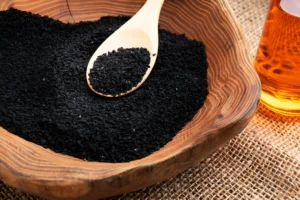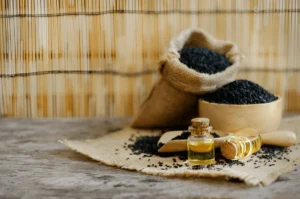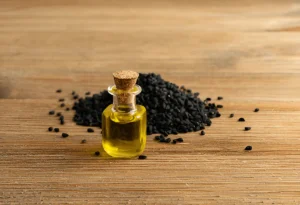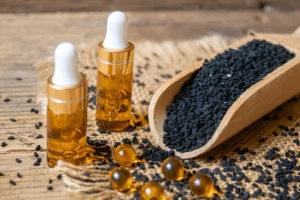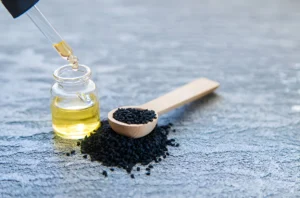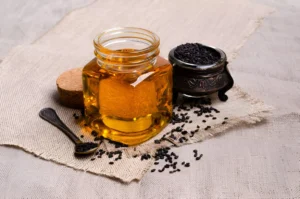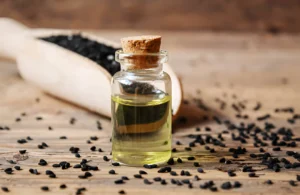 black seed oil for malaria
black seed oil for malaria
Malaria and Its Global Impact
The primary way that malaria is transmitted is by the bites of female Anopheles mosquitoes carrying the Plasmodium parasite. Malaria is a deadly infectious illness. Plasmodium falciparum is the predominant cause of the most deadly type, accounting for most fatalities. There are more species that provide health hazards, such as P. vivax, P. ovale, and P. malariae. When these parasites enter the body, they go to the liver and start to grow there before entering the red blood cells. Symptoms of malaria, including fever, chills, headaches, and exhaustion, are often experienced throughout this procedure. Approximately 90% of cases and fatalities of malaria occur in sub-Saharan Africa, making it a major public health concern worldwide. Particularly susceptible to this illness are young children, pregnant women, and those with compromised immune systems.
Common Symptoms of Malaria
Depending on the exact Plasmodium species involved, malaria symptoms might vary, however the following are the most typical ones:
- Fever and Chills: Frequent cycles of fever and chills are caused by the parasites proliferating and emerging from red blood cells.
- Anemia Patients experiencing weakness and exhaustion from anemia due to parasitic destruction of red blood cells benefit from black seed oil, which helps revitalize blood health
- Sweating and Fatigue These symptoms can be accompanied by muscle aches, nausea, and vomiting.
- Headache: Malaria patients frequently have severe and persistent headaches.
- Jaundice: In extreme circumstances, liver damage brought on by the parasites may result in jaundice, or yellowing of the skin and eyes.
Conventional Malaria Treatment
Antimalarial drugs are usually used as part of conventional malaria treatments. The kind of Plasmodium infection and the severity of the illness determine which medication is best. Typical antimalarial medications include:
- Artemisinin-based Combination Therapies (ACTs): The most effective treatment for P. falciparum malaria.
- Chloroquine: Used in areas where P. vivax is prevalent.
- Primaquine: Targets the dormant liver stages ofP. vivax and P. ovale, preventing relapses.
Although these treatments have proven effective, the growing challenge of drug resistance has led to a search for alternative solutions. Among the options gaining attention is the potential of natural remedies such as black seed oil for malaria.
Nigella Sativa as a Promising Tool for Malaria Research
Research is actively exploring the potential of Nigella sativa in malaria treatment. Preliminary studies have shown encouraging results, yet more human trials are essential to establish the efficacy and safety of black seed oil as a complementary therapy alongside conventional treatments. In regions where drug-resistant malaria presents significant challenges, natural remedies, particularly kalonji for malaria, are invaluable in reducing the disease burden and enhancing patient outcomes.
 black seed oil malaria
black seed oil malaria
Black Seed Oil Malaria Benefits for Effective Treatment
Black seed oil, derived from the seeds of Nigella sativa (also known as kalonji), has gained increasing attention for its potential therapeutic benefits in treating various ailments, including malaria. While it may not be a standalone cure for malaria, black seed oil offers several properties that could make it a valuable complementary therapy. Below is a detailed exploration of the key properties of black seed oil and how they contribute to malaria treatment and recovery:
Antimalarial Properties of Black Seed Oil
One of the most significant potential benefits of black seed oil for malaria comes from its antimalarial effects. Thymoquinone is the most prominent bioactive substance found in Nigella sativa. Research has indicated that thymoquinone may be effective in combating parasites that cause malaria, especially Plasmodium falciparum, which is the cause of the disease’s most severe and fatal cases.
- Inhibition of Parasite Growth: It has been demonstrated that thymoquinone and other substances in black seed oil prevent Plasmodium parasites from growing by upsetting their life cycle. By doing this, the oil can help patients recover more quickly and lessen the severity of their infection. According to a number of studies, black seed oil may have a direct impact on Plasmodium falciparum’s reproduction process, which would lower the parasite burden within the body.
- Parasite Clearance: Some experimental studies have indicated that black seed oil may help clear malaria parasites from the bloodstream, though further clinical trials are necessary to confirm its full effectiveness. In combination with conventional antimalarial drugs, black seed oil could potentially enhance parasite clearance and improve treatment outcomes.
Enhancing Immune Response
Malaria often weakens the immune system, leaving individuals vulnerable to prolonged illness and secondary infections. Black seed oil is known for its immune-boosting properties, which can be highly beneficial for individuals recovering from malaria.
- Immune Modulation: Black seed oil enhances the body’s immune response by promoting the production and activity of immune cells. Studies show thatNigella sativa can stimulate the production of macrophages, T-cells, and B-cells, which are essential for fighting infections. For malaria patients, this enhanced immune function can accelerate recovery by boosting the body’s natural defenses against the parasite.
- Preventing Secondary Infections: Because of their weakened immune systems, people who have malaria are frequently susceptible to developing secondary illnesses. Black seed oil helps strengthen the immune system and lower the chance of developing new infections that could make healing more difficult.
Anti-Inflammatory Benefits
A malaria infection is characterized by inflammation, particularly in more severe forms. Fever, tiredness, and muscular aches are among the symptoms that are caused by the immune system’s reaction to the parasite, which causes inflammation in important organs including the liver and spleen. The strong anti-inflammatory qualities of black seed oil can aid in the relief of these symptoms and promote healing.
- Thymoquinone’s Role in Inflammation Reduction: Black seed oil’s active ingredient, thymoquinone, has been demonstrated to inhibit proinflammatory chemicals like cytokines, which cause inflammation when an infection occurs. Black seed oil can lessen the inflammatory response and relieve the pain and fever linked to malaria by lowering the quantities of these chemicals.
- Supporting Organ Health: By reducing inflammation in organs such as the liver and spleen, black seed oil may help prevent further damage to these critical systems, aiding in the overall recovery process from malaria.
Oxidative Defense
Malaria is known to cause oxidative stress, which occurs when an imbalance between free radicals and antioxidants in the body leads to cell and tissue damage. The accumulation of free radicals during a malaria infection can exacerbate organ damage and prolong recovery, potentially impacting liver function. Black seed oil, rich in antioxidants, helps combat oxidative stress and protect the body from further damage.
- Neutralizing Free Radicals: By neutralizing dangerous free radicals, including thymoquinone, the antioxidants in black seed oil help to lower oxidative stress. This activity helps shield cells from harm and can stop malaria-related side effects including anemia and liver failure.
- Enhancing Recovery: Black seed oil promotes general cellular health and expedites the healing process by lowering oxidative stress, ensuring that critical organs like the liver and kidneys operate at their best when recovering from malaria.
Anti-Parasitic Action
Recent research has explored the potential anti-parasitic properties of black seed oil. Compounds in black seed oil may exhibit activity against parasitic organisms, which could make it a helpful adjunct in malaria treatment.
- Plasmodium Inhibition: Studies suggest that black seed oil can inhibit the lifecycle of Plasmodium parasites by affecting their ability to invade red blood cells, one of the critical steps in malaria progression. This anti-parasitic action, combined with its immune-boosting and anti-inflammatory properties, strengthens the body’s overall defense against malaria.
 black seed for malaria
black seed for malaria
Scientific Validation Studies on Black Seed for Malaria
Scientific research provides strong evidence supporting the potential of black seed for malaria treatment, particularly in managing the symptoms and supporting recovery. A study published in the Journal of Ethnopharmacology highlights the antiparasitic properties of black seed oil, showing its ability to inhibit the growth of Plasmodium parasites, which cause malaria. Research featured in the African Journal of Traditional, Complementary, and Alternative Medicines emphasizes how thymoquinone, the active compound in Nigella sativa, enhances immune response, helping the body combat malaria black seed oil complications.
Studies published in Phytotherapy Research demonstrate the oil’s anti-inflammatory capabilities, which reduce organ inflammation and pain caused by malaria, contributing to faster recovery. Research from the Journal of Natural Products confirms that black seed oil malaria treatment lowers oxidative stress, protecting cells from damage and aiding recovery. These findings solidify the role of kalonji for malaria as a complementary therapy, enhancing traditional treatments.
How to Use Malaria Black Seed Oil for Recovery
Black seed oil, derived from Nigella sativa, has shown promising potential as a complementary treatment for malaria due to its potent antiparasitic benefits, anti-inflammatory, and immune-boosting properties. Incorporating black seed oil for malaria into your recovery plan can provide additional support when used alongside conventional treatments. Here’s how to effectively use malaria black seed oil to optimize its benefits:
| Method | Description | Impact |
| Dosage and Consumption | Take 1-2 teaspoons of black seed oil daily. It can be consumed directly or mixed into warm water or herbal teas. | Enhances the immune system and reduces inflammation. |
| Topical Application | Apply a few drops of black seed oil to areas with muscle aches or fever. Massage gently for relief from pain and discomfort. | Helps alleviate pain and inflammation, promoting quicker healing. |
| Combining with Conventional Treatments | Black seed oil should be used alongside traditional antimalarial medications. | Strengthens the immune system and aids in parasite clearance, complementing drug therapy. |
Malaria Prevention Strategies to Mitigate Risk
Effective malaria prevention is crucial for diminishing the global impact of this disease. Key strategies to reduce the risk of malaria transmission include:;- Insecticide-Treated Bed Nets (ITNs): Using ITNs provides a protective barrier, significantly lowering the likelihood of mosquito bites during the night.
- Indoor Residual Spraying (IRS): Regular application of insecticides on indoor surfaces can effectively eliminate mosquitoes, reducing the chances of malaria transmission within homes.
- Antimalarial Medications: For those traveling to malaria-endemic regions, prophylactic use of antimalarial drugs is essential to prevent infection and safeguard health.
Implementing these strategies can substantially lower the risk of malaria, contributing to a healthier, malaria-free future.
Key Takeaways
Plasmodium parasites produce malaria, which is a serious health risk, especially in sub-Saharan Africa. Antimalarial drugs such ACTs and chloroquine must be taken quickly to address symptoms including fever, chills, exhaustion, and anemia. Black seed oil is made from Nigella sativa and may be useful as an adjunctive therapy. Thymoquinone, the active ingredient, boosts immunity, lowers inflammation, and stops the formation of parasites, all of which promote healing. Research from science validates its use in conjunction with traditional treatments to manage symptoms. Use modest dosages or topically while speaking with a healthcare provider to get the most out of black seed oil. It is still crucial to put preventative measures in place to reduce the risk of malaria and enhance health outcomes in impacted areas, such as bed nets coated with insecticide and preventive drugs.


